Into Our Fifth Year of Financial Independence
We’re now into our fifth year of being financially-free, having retired from the corporate workforce back when we were age 43 (we recorded this video at the time). We’ve written about how we did this a few times before, so we’ll only quickly summarize our approach in this post, and instead focus on how things have gone over those four years and what we plan to do next. The aim of this post is to help anyone thinking of making a similar lifestyle choice.
What Does Our Life Look Like?
We’re both 47 now, and we’ve been free of the need to swap our time for money for over four years. We do still occasionally work, but we have no boss, no deadlines, no office politics, no need to commute and we don’t argue over money. Instead we’ve the choice to do whatever we please, within our means, which for us entails mixing up months of travel with life at home in the UK, where we share our house with tenants.
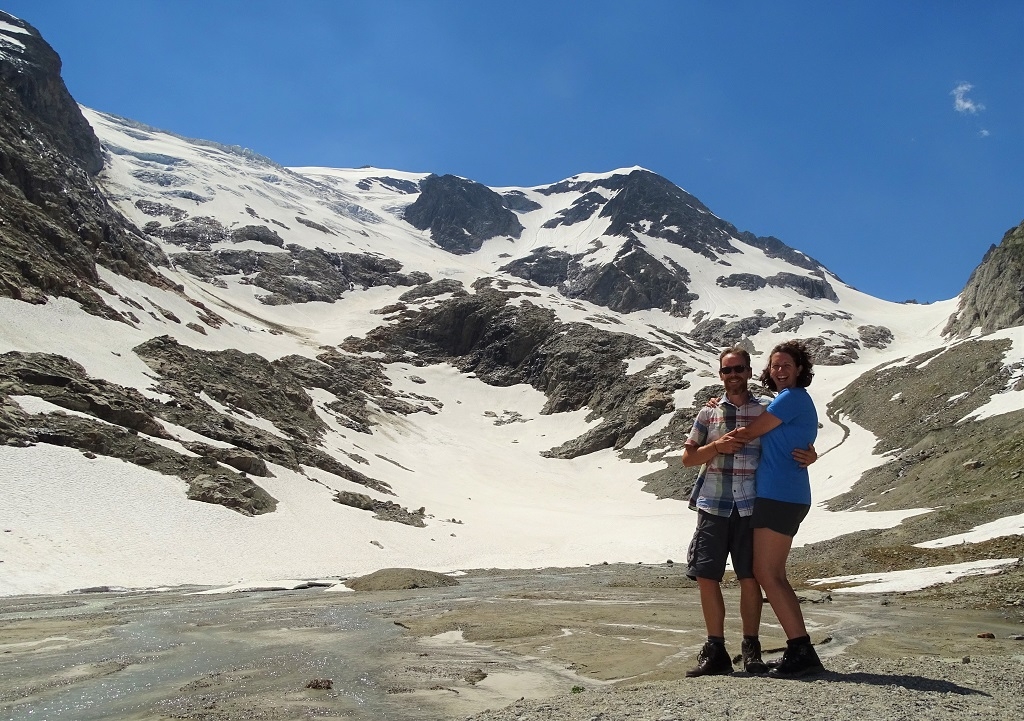
How We Retired at 43
Many of us associate retirement with pensions, which aren’t legally accessible in the UK until at least age 55. If you want to get yourself free of the shackles of employment before then, you need another life-funding approach. Some folks opt to rent out their family home and live in their motorhome (this and a few other approaches are described here). We did this for our first two years of travel, but as the rent alone didn’t cover our outgoings, when we returned to the UK we decided we needed to gear up our finances to support us long-term, without us having to live in our motorhome (here’s why we don’t full-time).
Through a meandering path we’ve ended up with a combination of types of asset, which generate enough income for us to live from long-term. Our motorhome touring also significantly helped us by demonstrating how we can live happy and fulfilled with fewer possessions and a (fairly) low expenditure, which dramatically reduces the amount of assets we need to own. That in turn cut a decade or two from our working lives. There’s more detail in our short Funding Freedom free eBook (no need to give any details, just download it, or get it on your Kindle here).
As we’ve said in Funding Freedom, we tend to see our position as one of ‘financial freedom’ rather than ‘traditional retirement’. In other words, we still work, generating additional income writing books from time to time like The Motorhome Touring Handbook (here’s how we self-publish), working for Utility Warehouse, receiving Google Adsense advertising revenue from this blog and helping clients publish websites and record promotional videos. I’m finding myself leaning further towards the word ‘retirement’ as the years pass and we get closer to ‘normal’ early retirement age, as we really can’t claim to be doing a great deal of grafting!
How The Financial Plan has Played Out
To get financially-free required us to deliberately get a hand on the tiller, to focus on both how we want to live and how that ties in with the amount of income we need. That meant we had (and still have) to talk about our goals and how we fund them as a couple. It also meant we had to start keeping a much closer eye on our spending. Without knowing where the money was going, we couldn’t work out what changes we needed to make to avoid spending money which we don’t get much benefit from.
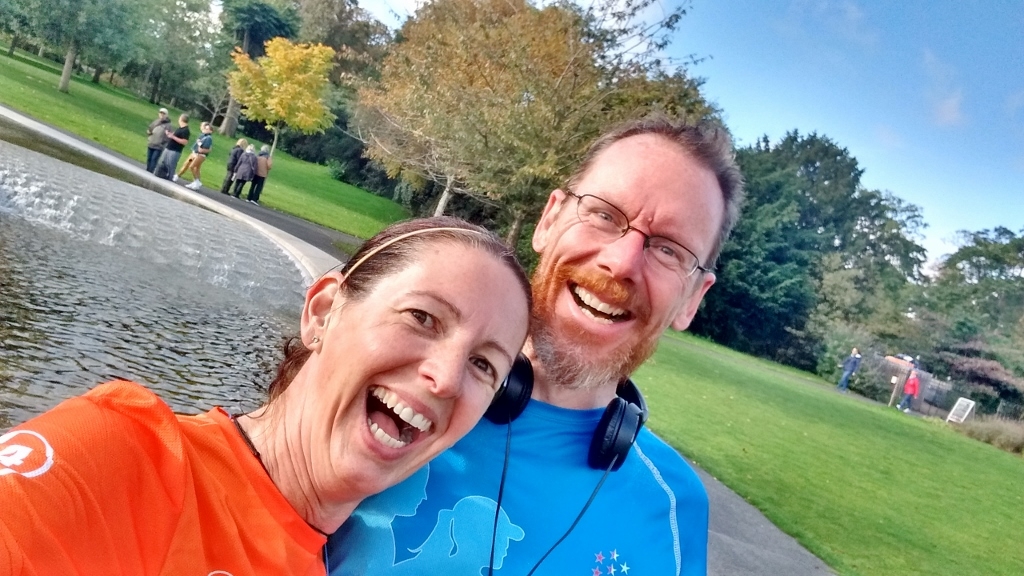
So behind the photos of us two stood smiling in front of a landscape somewhere lies a beast of a spreadsheet. In it Ju keeps a track of everything we spend, all of our income, everything we own and everything we owe. Our financial life is effectively run like a small business, including a monthly review of how things are looking, how much we’ve spent versus our income, what cash or cash-like assets (premium bonds) we have available, any large expenditure we can foresee and so on. We also complete personal and partnership tax returns each year, and the detail of income and expenses needed is all to-hand in his monster spreadsheet when we need it.
Cutting to the chase, the plan is working out fine. In our original planning we’d aimed for a passive income of £25,000 a year initially (after taking out management costs, void periods, maintenance and repairs and so on for our rental incomes). We later revised this down to £18,000 of income a year (with a £15,000 spending budget) when we’d worked out how much our private pensions would contribute and knowing we could do some sort of work to earn extra income if we needed it. After three years of ‘retirement’ we upped our spending budget to £20,000 a year, but we’ve consistently underspent against this budget.
Income-wise our assets are generating more than we expected, but nothing spectacular. Our share dividends are paid to us every three months, but our other income is paid monthly: rent, book royalties, advertising income, Utility Warehouse payments and feed-in tariff payments. We’ve not had any major costs, although we do hold enough cash to cater for them. Things are just ticking along at the moment.
What We’ve Learned Since Hitting Financial Freedom
We’ve had a chat and come up with these main themes for the things we’ve learned over the past four years:
- Plan for beyond the plan. We chased financial freedom like fiends after coming home from our two year motorhome tour. Our aim was to build a capability to travel as and when we wanted to, which we achieved. What we didn’t plan for was what we’d do if we ever tired of full-time travel. After a couple more years on the road, that eventuality arose and we were left casting around for what to do next.
- Ponder purpose. We all need some purpose in life. While we were working and building our careers (or more accurately frightened we might be made redundant at any point) we had a defined purpose: financial survival. Once we’d removed that need, and satiated our need to travel constantly, it exposed a big question: who were we, and what did we want to do with our lives. This came as a shock, and we weren’t prepared for it.
- Expect mild interest at best. Our feeling was we were doing something extra-ordinary in getting financially-free so young. We imagined lots of people would be interested in this, how it was done and how they might be able to replicate it. The reality is most folks are mildly interested at best, they’ve each got their own version of life to live after all.
- Believe in the plan. Our plan was considered for years. We built our knowledge from a large number of books and blogs. We thought it through, discussed it, modeled it with various scenarios. We didn’t just decide one day to quit and hope our finances would hold up (well, OK, we did at first but that was only for the short-term!). Even then it’s taken a few years to build confidence our plan will work. The numbers are stacking up though and, more importantly, we remain happy with our life choices.
- Be prepared to swim upstream. Spending much less than you earn, downsizing your living space in your 40s, heavily investing and doing away with most of your possessions aren’t common behaviors in British society. Getting financially-free in the way we did required taking a different path to our peers, and staying financially-free will mean we will need to swim against the tide steadily for many years.
- Know you’ll be going it alone. Everyone else has busy lives, and most are at work in the week. Unless your peer group is already of retirement age, be prepared to be on your own a lot of the time. That said there are still loads of folks out and about in the day, just look in any Wetherspoons around lunchtime! We do miss hanging out with our friends in the week, but we love ‘off peak’ lifestyle – visiting places that are busy at the weekend during the week to avoid queues.
What’s Next?
We’re thankfully in good health and are actively working on keeping it that way. It’s possible we could be living ‘in retirement’ for another 30, 40 or even 50 years (not that we’re taking anything for granted). That’s quite a few days to fill and the thought of what we should be doing with them can be overwhelming. Our approach to this has been to limit our horizon, only to look ahead for a year at most, in direct contrast to our long-term, multi-decade financial planning.
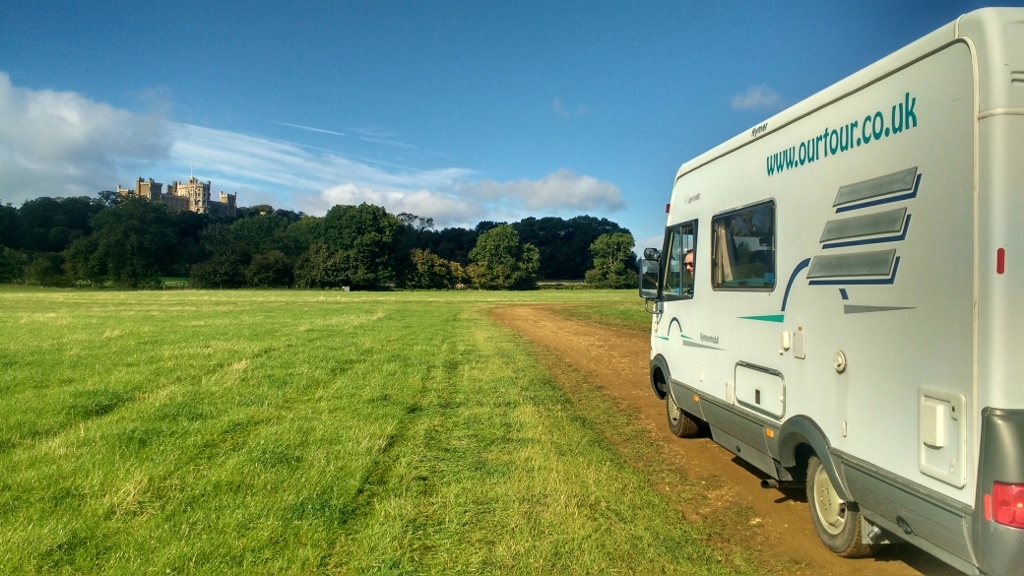
We foresee more travel, and we’re finding it difficult to step away from the motorhome method of wandering, as it’s simply a great combination of freedom, flexibility, cost and comfort. We’ve a three week jaunt planned to Scotland in Zagan (our motorhome), and following that various ideas are being pondered, including more house-sitting, a motorhome swap or two, and a winter in Andalusia or Greece. Watch this space folks.
Helpful Financial Independence Blogs
I’ve found these blogs particularly useful: Mr Money Mustache (US), Early Retirement Extreme (US), The Escape Artist (UK). For a huge directory of financial independence blogs, have a look at Rock Star Finance.
Cheers, Jay

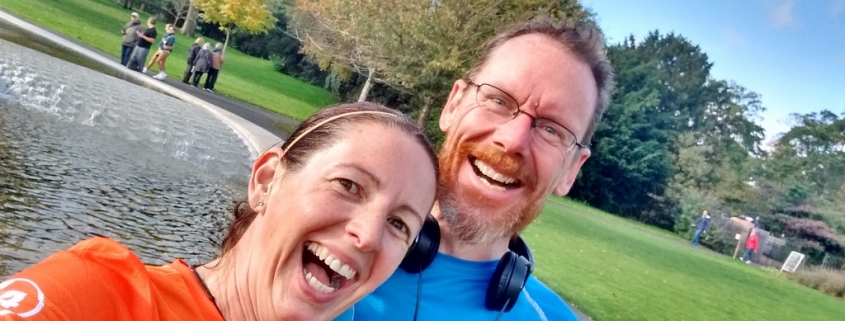
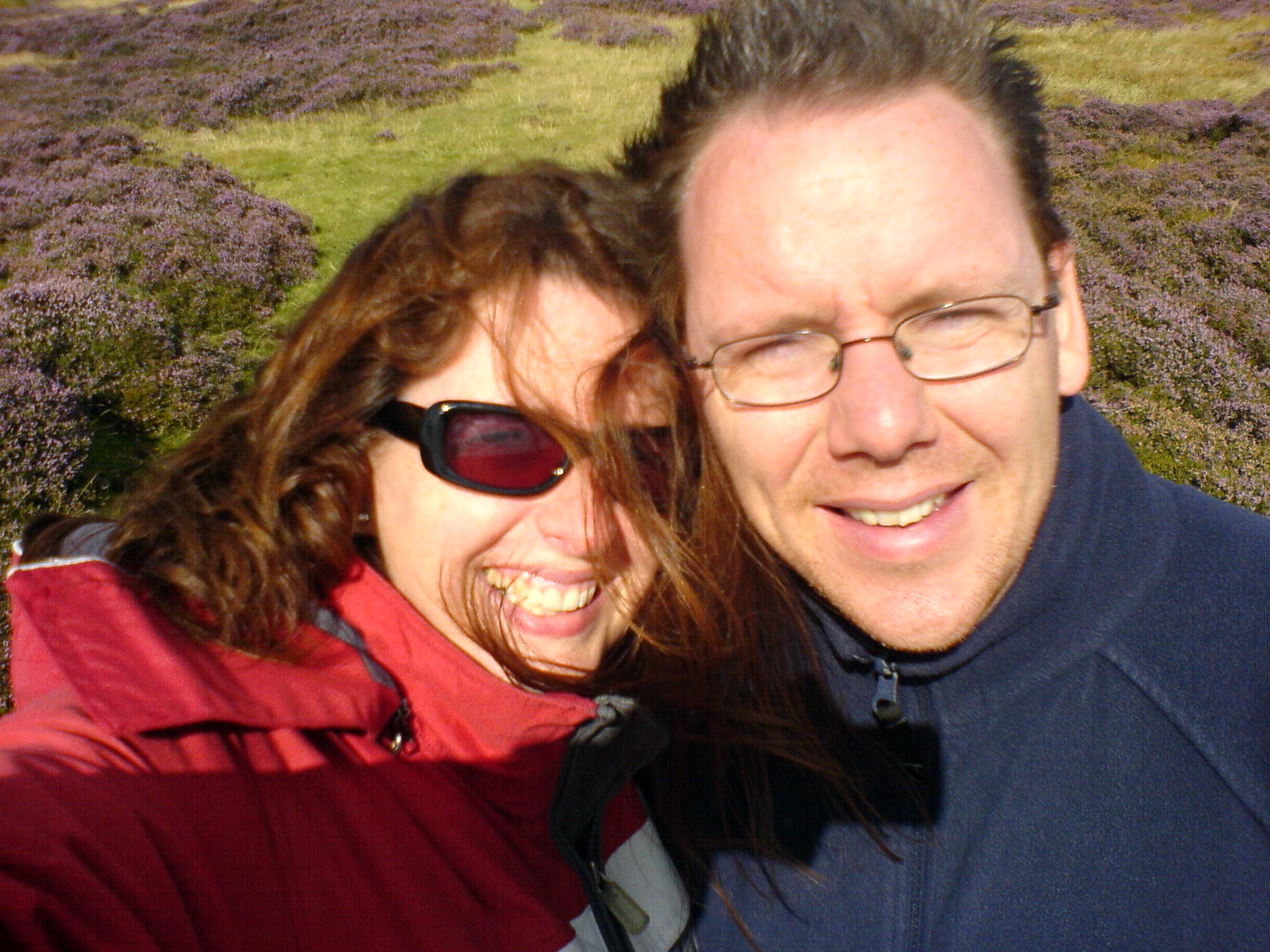
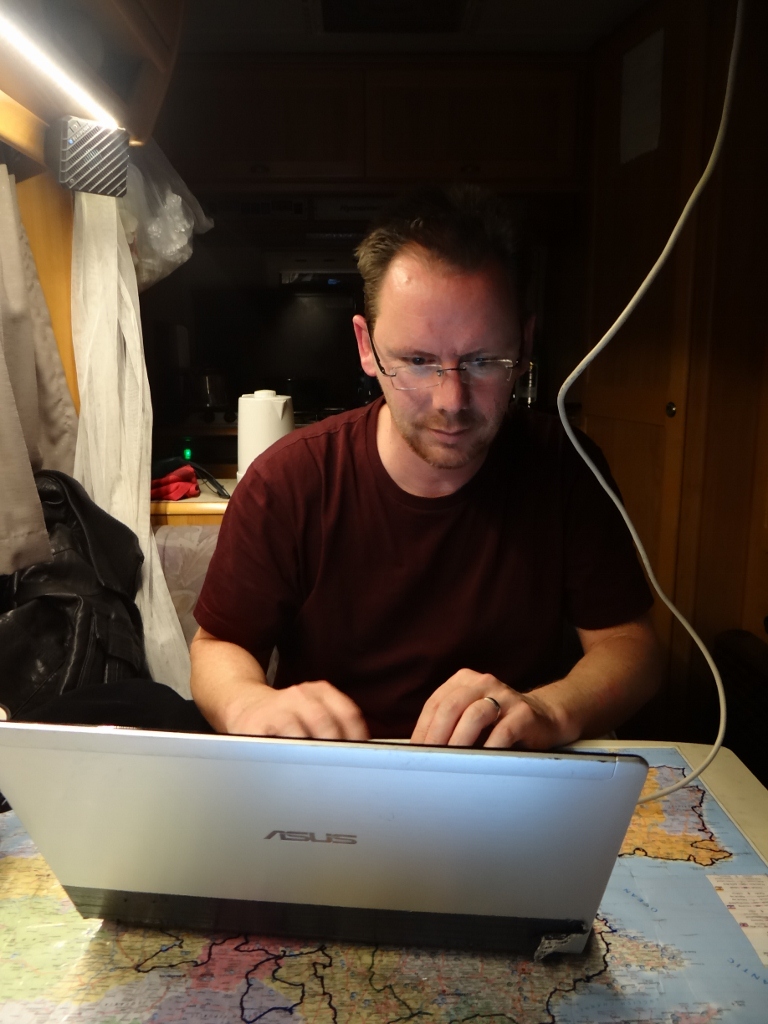
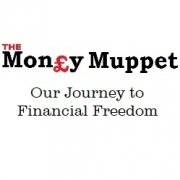




Great post Jay and as you progress through your fifth year a lot of what you say resonates with me. I’ve now been FIRE’d for 11 months and rather than travel like your good selves we upped sticks from the UK and moved 100% to Cyprus. It was absolutely brilliant at first. The stress of work fell away, the b*llshit bucket of the job disappeared, I lost 10kg and our relationship as a couple strengthened. Then about 6 months in a couple of things hit us in the face which I think aligns with your first two points – plan for beyond the plan and ponder purpose.
After the honeymoon was over we found we missed truly meaningful friends and family greatly but the bizarre thing was that the ones we have now identified as truly meaningful weren’t in the UK either. We were just so busy with work, that had at sometime become a job, to notice that gap in our lives prior to FIRE. With time we will fix that (we’re currently hatching a plan) but we’re now doing the change one thing at a time approach so won’t leap from the UK without a lot of thought and some time.
I also really struggled with purpose and even tried returning to my industry albeit in a different role and organisation that I though might deal with a lot of the stress and b*llshit negatives. That was most definitely the wrong thing to do but at least I’ve now drawn a line under that. I’m not sure what the answer is but it wasn’t that.
So as somebody who’s not quite a year in, so some way behind FIRE experts like you, I’d say we are still very much finding our way. There’s been many highs and some lows but overall I’m glad I went for FIRE at age 46 and look forward to figuring it out. I much prefer that to watching the years disappear in a job that brings me no purpose. At least I now know I’m living.
While browsing around Waterstones I picked up and skimmed some books on retirement, traditional retirement, and guess what? They heavily focused on purpose: what retirees would actually do with their time to get a sense of purpose, feel fulfilled and enjoy their job-less years. Most FIRE blogs I’d read had focused more on how to get there than what to do afterwards, what new challenges we might face.
I did the same as you, I went back to my old work environment for 4 months, albeit in a different role and set of people. Ju made me track how happy I was (out of 5) each evening when I came home, as we knew more contract extensions would be offered, and I scored something like 1.5 stars from 5 (with 5 being ‘happy’). A simple exercise but a useful one: going back to work wasn’t the right thing to do, not that type of work anyway.
Exactly what my purpose is remains out there somewhere for me to find. For the time being I’m concentrating on now getting too bogged down with it, same as you. It’s a beautiful world after all!
Cheers, thanks for commenting, really appreciated. Jason
I now know that I did the lead up to FIRE wrong. I treated FIRE day as the finish line of a 10 year marathon and I really did fall over the line exhausted. What I should have done is treated it like a triathlon with getting to FIRE being the swim. It sounds like I should have read more books than blogs.
I remember reading about your 1 to 5 scores and it was in the back of my mind as I went back into my industry.
I agree with you that the blogs really don’t focus on this. I think it might be for 3 reasons. Firstly, most FI/FIRE bloggers aren’t FI and so have no choice but to chart the journey up to FI probably making the same mistakes I did. Secondly, once some of the good blogs get to FIRE they stop blogging. livingafi and Brave New Life come to mind. Thirdly, the popular blogs in the FIRE space aren’t FIRE but FI as they’re running very successful blogs and other side hustles so they don’t need to search for purpose as they already have it.
I look forward to reading about your search for purpose as I know you’ve been very transparent over the years on the topic. I’m also going to try and share as I look for it. Sometime I wonder if I’m over complicating it.
For now I’m going to concentrate on filling out the bottom four rungs of Maslow’s Needs with Safety needs and Belongingness needs definitely needing work. Hopefully purpose falls out as part of the journey but if it doesn’t I’m happy to keep looking when compared to the 9 to 5 grind.
Good information, thanks fella.
I’ve tried a few methods of seeking out purpose: (through reading books and websites, and actually trying stuff out): travelling, blogging about money, blogging about travel, going back to work, writing books, long distance running, abstaining from alcohol, and a bunch of other smaller things so far. My feeling is it’s a never-ending challenge, and the answers will vary as the years pass. I get anxious about it from time to time, at which point I know I need to start looking at something new.
One problem I have (if you can call it a problem) is the fact the longer I’m out of the daily grind the less I can ‘feel’ what it’s like to not be FI. These days I’ll find myself in a conversation with someone going through the usual working life process and telling them I’m off to travel for the winter without the hesitation I used to feel. Seems quite normal to me these days, but it isn’t normal of course. In other words, the huge advantages of being FI become more and more ‘normal life’ as the years pass, and the initial incredible sensations fade, leaving a new gap between what I’m doing and what I need to do. Most definitely a First World+ Problem! But a problem nevertheless. Life’s interesting eh?
Cheers, keep pushing on, Jay
Even though I’m a few years behind you I agree with everything you say. Like anything to become successful at it time and effort is required. Maybe purpose is just the same and the process of trying to find it might actually be purpose.
I’ve also essentially stopped alcohol, ramped up the exercise, spend more quality time with the better half and have travelled to spend more time with meaningful friends/family. It’s keeping me busy but the jury is still out on whether that will be enough. There’s also possibly a risk that we’re over thinking it? Mrs RIT recently made a very good point to me – “You’ve spent your life working out how to be more and more of a human doing why don’t you now focus on becoming a human being?” That approach certainly takes the self induced pressure off.
Talking about methods for purpose I stumbled upon something called Ikigai as possibly a way to help me find purpose. I’ve used it for a few ideas and it’s helping a little. A quick Google will give you the very simple template from plenty of sources. You might find it helpful.
Hi with regard to purpose, one thing that I suspect you may have already come across is Maslow’s hierarchy of Needs. I mention it in case you haven’t. Whilst working I came across it a few times. For employers one of the things that it highlights is that pay isn’t necessarily the key to have happy employees. Of relevance are the ‘belonging needs’ and the ‘esteem needs’. I certainly hold your blog in great esteem. Enough rambling, if you haven’t come across it you might find it interesting.
You guys are reliable and level which is a great asset to us all that follow you.You keep the blogs going when all others throw the towel in, credit to you both. Thanks from Yorkshire and long you may continue.
Regards
S Wood.
May I just make a simple comment to both Jason and RIT.
Ultimately your long searches on how to become human beings will lead you to one final truth. After all the research is done, all the paths are followed and all the options are tried it will come down to ‘it’s all about people’.
J
Wise words Jamie. Man hugs, Jay
Hi
Thanks for this, it’s really interesting. I have followed you both on your journey for a couple of years and find it really inspiring. My husband and I ‘retired’ in 2016, aged 43 and 49, and and since then we have done a bit of travelling and done some seasonal work (to keep the finances going). It has been brilliant so far, but I totally agree with everything you say in your blog. We love the travelling and the freedom, but we also need to find our purpose. We’ll keep looking but for now getting excited to go and live and work in the mountains for a ski season. Keep the blogs coming – they’re fab.
Anna
Cheers Anna, congratulations on your early escape and enjoy the big hills! Jay
Hi, I have followed your journey for around 18 months with interest, and reached FI 7 months back after working in the Commercial world for many years. Currently working as a Technical Project Manager for a Local Authority and am focussed on doing some net good for society, which feels a good thing to do and also helps make us more secure! You are absolutely right we are all travelling on different versions of life, but I think purpose is probably the biggest challenge once you remove the basic needs of having to work to pay the bills.
Hello, some other good FI blogs to check out include https://firevlondon.com/ https://ditchthecave.com// https://www.iretiredyoung.net/ and https://indeedably.com/ Those I’ve listed cover quite a few different approaches to FI and what happens after it has been achieved. I’ve always been financially literate and pretty frugal so I’ve achieved a decent FI pot. Some of it’s tied up in pensions, some in a couple of mortgage free properties, some is invested in ISA’s and the remainder in a cash like emergency fund. I’m continuing to work but I suspect I’ll be giving that up in the next 6 to 12 months ( subject to on more year syndrome ). I’m presently just working to shovel more money into my personal pension scheme. I also worked for a number of years at a large European Energy company ( the same as you ) and I would recommend you get a CETV figure for your deferred DB pension scheme – my CETV jumped by about 25% this year. As usual this does not constitute financial advice ….
Thanks for those David – all but one of them are new to me – I’ll have a scan. Sounds like you’re in a great financial position, congratulations. We’ve both had CETVs last year for our occupational pensions, but not this year, thanks for the reminder. Cheers, Jay
Happy to help. I tend not to gravitate towards the FI blogs that push fee based “coaching” to those aspiring to FI. The core principals of measure what you spend, invest in yourself, earn more, save and invest wisely are pretty simple to grasp. Last year the CETV took about 3 months to produce but about 6 weeks this year. Annuity rates are at a current all time low so consequently transfer values have generally increased. Transferring isn’t in everyone’s interests but if you don’t have dependants and are happy to take on your own risk it may be a worthwhile option.